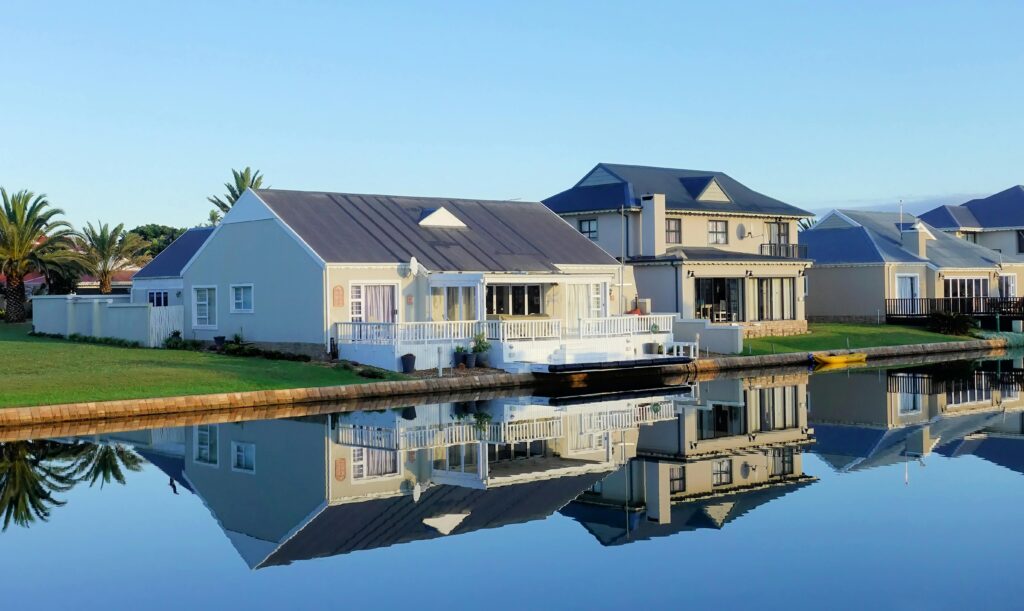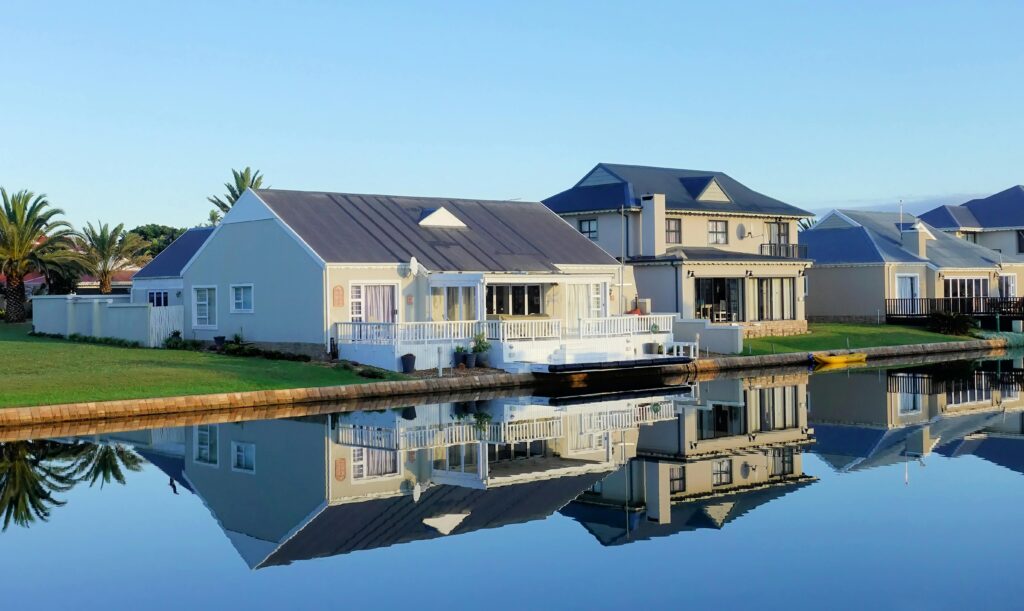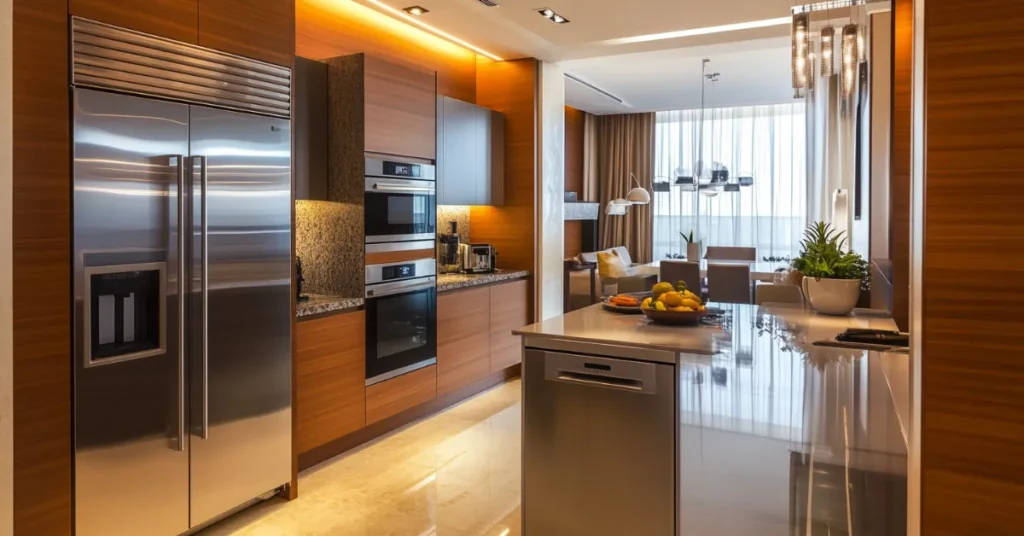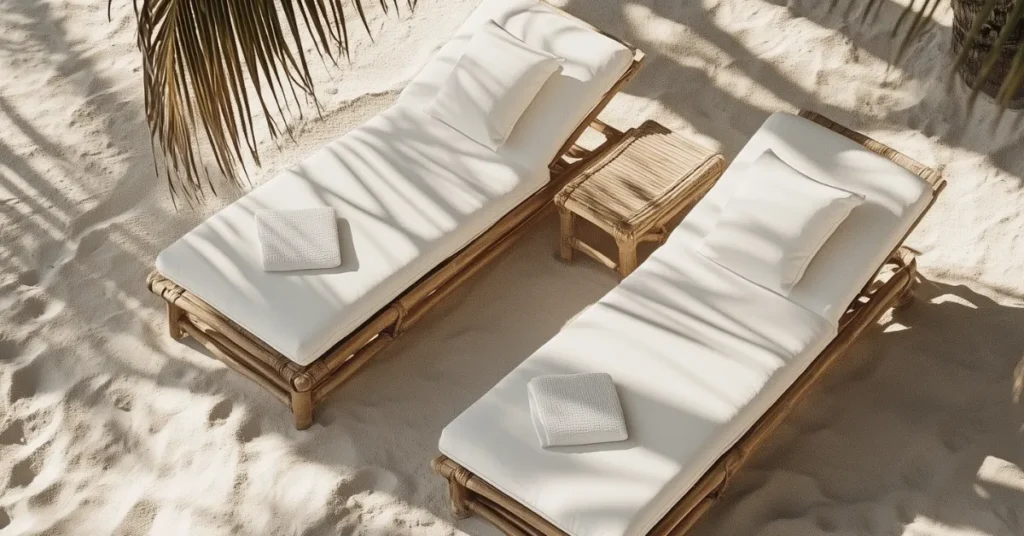<! - wp:paragraph - >
The short-term rental market is booming, and savvy entrepreneurs are tapping into unique accommodations to stand out. If you’re wondering, “Can you Airbnb a boat?”, the answer is a resounding yes! Listing a boat on Airbnb opens a niche market of boat rentals, offering travelers memorable experiences on the water. From houseboats to yachts, boat hosts are capitalizing on the demand for unique stays, and with the right strategy, this can be a profitable venture. Staying on a boat can provide serene waterfront views that enhance the travel experience, making it an attractive option for guests. As experts in short-term rentals, the 10XBNB program empowers boat owners to dominate this space with proven tactics. Let’s set sail into the world of Airbnb boat rentals and show you how to make waves in this exciting Airbnb business.
<! - /wp:paragraph - >
<! - wp:image {"id":3524,"sizeSlug":"large","linkDestination":"none"} - >

<! - /wp:image - >
<! - wp:heading - >
Can You List a Boat on Airbnb?
<! - /wp:heading - >
<! - wp:paragraph - >
you can list a boat on Airbnb! The platform welcomes a variety of unique accommodations, including houseboats, yachts, and even pontoon boats, as long as they meet safety and hospitality standards. Docked boats are the most common type of boat listing on Airbnb because they are easier to manage. Airbnb boat rentals are a growing segment, with houseboats being the most common type due to their comfortable living spaces. Whether docked at a marina or stationary on a lake, boats provide guests with a one-of-a-kind stay that rivals traditional vacation homes. At 10XBNB, we guide boat hosts to create appealing listings that attract adventurous travelers seeking unique and memorable experiences.
<! - /wp:paragraph - >
<! - wp:image {"id":4009,"sizeSlug":"full","linkDestination":"none"} - >

<! - /wp:image - >
<! - wp:heading - >
Types of Boats You Can List on Airbnb
<! - /wp:heading - >
<! - wp:paragraph - >
Not every boat is suited for Airbnb, but several types shine in the short-term rental market. Here are the most popular options for Airbnb boat rentals:
<! - /wp:paragraph - >
<! - wp:heading {"level":3} - >
Houseboats
<! - /wp:heading - >
<! - wp:paragraph - >
Houseboats are the backbone of Airbnb boat rentals, offering all the amenities of a home. Think dining tables, cooking utensils, and cozy beds. Docked at a marina, they provide a stable, comfortable stay for a few nights or longer. Houseboats provide all the conveniences of a traditional home, such as bedrooms and bathroom facilities, making them ideal for families or groups seeking a unique stay on the water.
<! - /wp:paragraph - >
<! - wp:heading {"level":3} - >
Yachts
<! - /wp:heading - >
<! - wp:paragraph - >
Yachts cater to luxury travelers, featuring spacious decks, swim platforms, and high-end interiors. These vessels command premium rates, especially in coastal markets like Miami or San Diego, where guests crave a lavish sea experience. However, potential downsides of staying on a boat include space limitations and possible seasickness, which should be communicated to guests in advance to manage expectations.
<! - /wp:paragraph - >
<! - wp:heading {"level":3} - >
Sailboats
<! - /wp:heading - >
<! - wp:paragraph - >
Sailboats appeal to adventure-seekers who want to sail or enjoy a docked experience. They’re smaller but offer a romantic, intimate vibe for couples or solo travelers.
<! - /wp:paragraph - >
<! - wp:heading {"level":3} - >
Pontoon Boats
<! - /wp:heading - >
<! - wp:paragraph - >
Pontoon boats, often used for day trips, can be listed as stationary rentals in calm waters. They’re budget-friendly and perfect for casual guests looking for fun on the water. Use foldable furniture, clever storage, and minimalist décor to maximize comfort in the limited space of a boat.
<! - /wp:paragraph - >
<! - wp:paragraph - >
Pro Tip: Highlight unique features like a swim platform or outdoor deck in your listing to stand out. Learn how to craft a standout Airbnb boat listing in 10XBNB’s Listing Optimization Blueprint.
<! - /wp:paragraph - >
<! - wp:heading - >
Is It Profitable to Airbnb a Boat?
<! - /wp:heading - >
<! - wp:paragraph - >
Renting a boat on Airbnb can be a highly profitable venture, especially in high-demand locations. Houseboat rentals in popular markets like Seattle or Key West can fetch $150-$500 per night, with occupancy rates often exceeding 70%. Yachts in premium destinations may command $1,000+ per night. The potential for year-round income is higher for boat rentals in areas with favorable climates. The key is setting competitive prices while showcasing unique features that justify your rates. At 10XBNB, we teach boat hosts to maximize revenue through dynamic pricing and direct booking strategies.
<! - /wp:paragraph - >
<! - wp:heading - >
How to List a Boat on Airbnb
<! - /wp:heading - >
<! - wp:paragraph - >
Listing a boat on Airbnb requires proper preparation to attract potential guests and ensure a smooth experience. Follow these steps to create an appealing listing:
<! - /wp:paragraph - >
<! - wp:list {"ordered":true} - >
- <! - wp:list-item - >
- Verify Eligibility: Ensure your boat meets Airbnb’s safety guidelines, including enough life jackets, fire extinguishers, and Coast Guard compliance.
- Prepare the Boat: Equip your boat with all the amenities, beds, cooking utensils, and a dining table, for a comfortable stay. Guests will expect basic amenities like electricity, running water, cooking utensils, linens, and a bathroom or a shower. Cleanliness is critical to impress Airbnb guests.
- Take High-Quality Photos: Capture your boat in its best light. High-quality photos drive bookings.
- Write a Compelling Description: Highlight unique features, the marina’s location, and nearby attractions. Mention if guests can sail or if the boat remains docked.
- Set Clear House Rules: Specify check-in procedures, noise policies, and whether smoking or pets are allowed to avoid trouble.
- Price Competitively: Research similar Airbnb boat rentals in your area to set competitive prices that reflect your boat’s value.
<! - /wp:list-item - >
<! - wp:list-item - >
<! - /wp:list-item - >
<! - wp:list-item - >
<! - /wp:list-item - >
<! - wp:list-item - >
<! - /wp:list-item - >
<! - wp:list-item - >
<! - /wp:list-item - >
<! - wp:list-item - >
<! - /wp:list-item - >
<! - /wp:list - >
<! - wp:paragraph - >
10XBNB Insight: Our program helps boat hosts manage listings with precision, from pricing to guest communication. Join us at 10XBNB.com to master the art of Airbnb boat rentals.
<! - /wp:paragraph - >
<! - wp:heading - >
Safety Requirements for Airbnb Boat Rentals
<! - /wp:heading - >
<! - wp:paragraph - >
Safety is paramount when renting a boat on Airbnb. The Coast Guard and Airbnb enforce strict guidelines to protect guests. In the U.S., the Coast Guard mandates safety equipment like life jackets and fire extinguishers for rental boats. Here’s what boat hosts must ensure:
<! - /wp:paragraph - >
<! - wp:list - >
- <! - wp:list-item - >
- Enough Life Jackets: Provide life jackets for every guest, sized for adults and children.
- Fire Extinguishers: Equip the boat with working fire extinguishers, easily accessible.
- Coast Guard Compliance: Ensure the boat meets local maritime regulations, including registration and safety equipment.
- Weather Preparedness: Monitor weather conditions and communicate risks to guests, especially for boats that sail.
- Emergency Protocols: Provide clear instructions for emergencies, including marina contacts and evacuation plans.
<! - /wp:list-item - >
<! - wp:list-item - >
<! - /wp:list-item - >
<! - wp:list-item - >
<! - /wp:list-item - >
<! - wp:list-item - >
<! - /wp:list-item - >
<! - wp:list-item - >
<! - /wp:list-item - >
<! - /wp:list - >
<! - wp:paragraph - >
Pro Tip: Display safety guidelines in your house rules and during check-in to reassure Airbnb guests and reduce liability.
<! - /wp:paragraph - >
<! - wp:heading - >
Can You Sleep on Your Boat Anywhere?
<! - /wp:heading - >
<! - wp:image {"id":3525,"sizeSlug":"large","linkDestination":"none"} - >

<! - /wp:image - >
<! - wp:paragraph - >
You cannot sleep on your boat just anywhere when listing it on Airbnb. Most Airbnb boat rentals are docked at a marina or stationary in a designated location due to local regulations and safety concerns. Local zoning laws can affect the legality of renting boats, so it’s essential to check local laws and marina policies to confirm where your boat can be stationed for overnight stays. Guests typically expect a stable, comfortable living space, not a vessel that’s constantly on the move. Some boats may offer sailing experiences as add-ons, but this requires proper licensing and insurance coverage.
<! - /wp:paragraph - >
<! - wp:paragraph - >
Internal Link: Learn more about navigating regulations in our Airbnb Hosting Compliance Guide.
<! - /wp:paragraph - >
<! - wp:heading - >
Does Airbnb Have Houseboats?
<! - /wp:heading - >
<! - wp:paragraph - >
Yes, Airbnb has a strong selection of houseboat rentals, ranging from cozy docked vessels to luxurious floating homes. Houseboats are among the most popular Airbnb boat rentals because they combine the charm of unique stays with the comfort of vacation homes. Guests can find houseboat listings in markets like Seattle, Amsterdam, and the Florida Keys, offering a comfortable living space with docks, decks, and all the amenities. At 10XBNB, we show boat hosts how to position houseboats as premium short-term rentals to attract high-paying guests.
<! - /wp:paragraph - >
<! - wp:heading - >
Is There a Turo Equivalent for Boats?
<! - /wp:heading - >
<! - wp:paragraph - >
While Turo revolutionized car rentals, several platforms serve as the “Turo for boats.” These include:
<! - /wp:paragraph - >
<! - wp:list - >
- <! - wp:list-item - >
- Boatsetter: A peer-to-peer platform for boat rentals, offering both captained and self-driven options.
- GetMyBoat: The largest marketplace for boat rentals, including houseboats, yachts, and pontoons.
- Click&Boat: A global platform connecting boat owners with renters for short-term rentals.
<! - /wp:list-item - >
<! - wp:list-item - >
<! - /wp:list-item - >
<! - wp:list-item - >
<! - /wp:list-item - >
<! - /wp:list - >
<! - wp:paragraph - >
These platforms focus on boat rentals for day trips or sailing, whereas Airbnb boat rentals emphasize overnight stays and unique accommodations. For maximum revenue, many hosts list on both Airbnb and these platforms, using 10XBNB’s Multi-Platform Strategy Guide to streamline operations.
<! - /wp:paragraph - >
<! - wp:heading - >
Pros and Cons of Airbnb Boat Rentals
<! - /wp:heading - >
<! - wp:heading {"level":3} - >
Pros
<! - /wp:heading - >
<! - wp:list - >
- <! - wp:list-item - >
- High Demand for Unique Stays: Boats attract travelers seeking memorable experiences, boosting bookings.
- Premium Rates: Yachts and houseboats can command $150-$1,000+ per night in top markets.
- Niche Market Advantage: Fewer boat rentals mean less competition compared to houses or apartments.
<! - /wp:list-item - >
<! - wp:list-item - >
<! - /wp:list-item - >
<! - wp:list-item - >
<! - /wp:list-item - >
<! - /wp:list - >
<! - wp:heading {"level":3} - >
Cons (Turned into Opportunities)
<! - /wp:heading - >
<! - wp:list - >
- <! - wp:list-item - >
- Regulatory Hurdles: Maritime and local laws can be complex. Opportunity: Partner with 10XBNB to navigate Coast Guard and marina regulations seamlessly.
- Maintenance Costs: Boats require upkeep. Opportunity: Budget for maintenance and highlight your boat’s pristine condition to justify higher rates.
- Weather Dependency: Storms can disrupt bookings. Opportunity: Offer flexible cancellation policies and promote indoor amenities for a comfortable stay.
<! - /wp:list-item - >
<! - wp:list-item - >
<! - /wp:list-item - >
<! - wp:list-item - >
<! - /wp:list-item - >
<! - /wp:list - >
<! - wp:heading - >
Top Locations for Airbnb Boat Rentals
<! - /wp:heading - >
<! - wp:paragraph - >
The success of an Airbnb boat rental hinges on location. Here are prime spots to list your boat:
<! - /wp:paragraph - >
<! - wp:list - >
- <! - wp:list-item - >
- Seattle, Washington: Known for houseboat rentals, with rates of $200-$400 per night.
- Miami, Florida: A yacht haven, where luxury boats fetch $500+ per night.
- Key West, Florida: Ideal for sailboats and houseboats, with high demand for sea-based stays.
- San Diego, California: Perfect for pontoon and yacht rentals, with rates of $150-$600 per night.
<! - /wp:list-item - >
<! - wp:list-item - >
<! - /wp:list-item - >
<! - wp:list-item - >
<! - /wp:list-item - >
<! - wp:list-item - >
<! - /wp:list-item - >
<! - /wp:list - >
<! - wp:paragraph - >
Pro Tip: Position your boat near popular marinas with easy dock access to attract more guests. Learn location strategies in 10XBNB’s Market Domination Blueprint.
<! - /wp:paragraph - >
<! - wp:heading - >
How to Make Your Airbnb Boat Listing Stand Out
<! - /wp:heading - >
<! - wp:image {"id":3526,"sizeSlug":"large","linkDestination":"none"} - >

<! - /wp:image - >
<! - wp:paragraph - >
To catch the attention of potential guests, your Airbnb boat listing must shine. Here’s how:
<! - /wp:paragraph - >
<! - wp:list - >
- <! - wp:list-item - >
- Use High-Quality Photos: Show the boat’s interior, deck, and marina views to create an inviting vibe.
- Highlight Unique Features: Mention a swim platform, dining table, or sailing options to differentiate your boat.
- Offer Add-Ons: Provide extras like guided sails or fishing gear to enhance the experience.
- Craft a Catchy Title: Use phrases like “Luxury Yacht Getaway” or “Cozy Houseboat Retreat” to draw clicks.
- Respond Promptly: Quick replies to guest inquiries boost your ranking on Airbnb.
<! - /wp:list-item - >
<! - wp:list-item - >
<! - /wp:list-item - >
<! - wp:list-item - >
<! - /wp:list-item - >
<! - wp:list-item - >
<! - /wp:list-item - >
<! - wp:list-item - >
<! - /wp:list-item - >
<! - /wp:list - >
<! - wp:paragraph - >
10XBNB Insight: Our program teaches boat hosts to optimize listings for maximum visibility and bookings. Join at 10XBNB.com to elevate your Airbnb boat rental game.
<! - /wp:paragraph - >
<! - wp:heading - >
Managing Guest Expectations
<! - /wp:heading - >
<! - wp:paragraph - >
Airbnb guests booking a boat expect a fun, unique stay, but clear communication is key to avoid trouble. Set expectations by:
<! - /wp:paragraph - >
<! - wp:list - >
- <! - wp:list-item - >
- Describing the Experience: Clarify whether the boat stays docked or can sail, and detail the marina’s amenities.
- Outlining House Rules: Specify noise limits, guest capacity, and safety protocols.
- Preparing for Check-In: Provide clear dock access instructions and marina contact details.
- Monitoring Weather Conditions: Update guests on sea conditions to ensure a safe, comfortable stay.
<! - /wp:list-item - >
<! - wp:list-item - >
<! - /wp:list-item - >
<! - wp:list-item - >
<! - /wp:list-item - >
<! - wp:list-item - >
<! - /wp:list-item - >
<! - /wp:list - >
<! - wp:heading - >
The 10XBNB Advantage: Mastering Boat Rentals
<! - /wp:heading - >
<! - wp:paragraph - >
Turning your boat into a profitable Airbnb rental requires strategy, and 10XBNB is your ultimate partner. Our program equips boat hosts with:
<! - /wp:paragraph - >
<! - wp:list - >
- <! - wp:list-item - >
- Tools to identify high-demand locations for boat rentals.
- Pricing strategies to maximize revenue from houseboats and yachts.
- Marketing tactics to create appealing listings that catch travelers’ eyes.
<! - /wp:list-item - >
<! - wp:list-item - >
<! - /wp:list-item - >
<! - wp:list-item - >
<! - /wp:list-item - >
<! - /wp:list - >
<! - wp:paragraph - >
Join the 10XBNB community at 10XBNB.com and transform your boat into a cash-flowing business.
<! - /wp:paragraph - >
<! - wp:heading - >
FAQs About Airbnb Boat Rentals
<! - /wp:heading - >
<! - wp:heading {"level":3} - >
Can you list a boat on Airbnb?
<! - /wp:heading - >
<! - wp:paragraph - >
Yes, boats like houseboats, yachts, and sailboats can be listed on Airbnb as unique accommodations, provided they meet safety and hospitality standards.
<! - /wp:paragraph - >
<! - wp:heading {"level":3} - >
Can you sleep on your boat anywhere?
<! - /wp:heading - >
<! - wp:paragraph - >
No, Airbnb boat rentals are typically docked at a marina or stationary in a designated area due to regulations and guest comfort preferences.
<! - /wp:paragraph - >
<! - wp:heading {"level":3} - >
Does Airbnb have houseboats?
<! - /wp:heading - >
<! - wp:paragraph - >
Yes, Airbnb offers a wide range of houseboat rentals, popular for their comfortable living spaces and unique stays in markets like Seattle and Key West.
<! - /wp:paragraph - >
<! - wp:heading {"level":3} - >
Is there a Turo but for boats?
<! - /wp:heading - >
<! - wp:paragraph - >
Yes, platforms like Boatsetter, GetMyBoat, and Click&Boat are peer-to-peer boat rental services, similar to Turo, focusing on day trips or sailing.
<! - /wp:paragraph - >
<! - wp:heading - >
Final Thoughts: Set Sail with Airbnb Boat Rentals
<! - /wp:heading - >
<! - wp:paragraph - >
Imagine your boat as a thriving Airbnb rental, welcoming guests for a few nights of unforgettable sea adventures. Whether it’s a cozy houseboat, a luxurious yacht, or a charming sailboat, Airbnb boat rentals offer a profitable niche in the short-term rental market. With the right location, safety measures, and listing strategy, you can create memorable experiences for travelers while boosting your business. Don’t just dream of success, make it happen with 10XBNB’s expert guidance. Join today at 10XBNB.com and set sail toward a thriving Airbnb boat rental empire.
<! - /wp:paragraph - >













